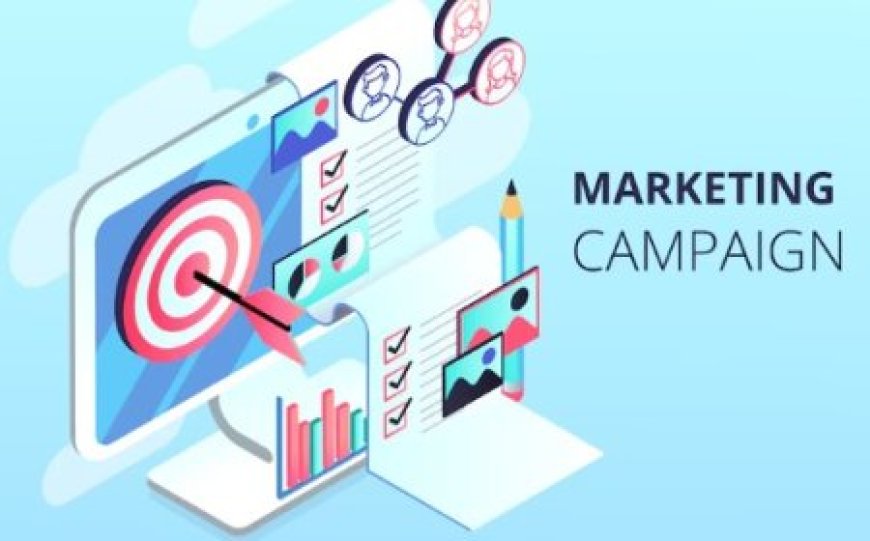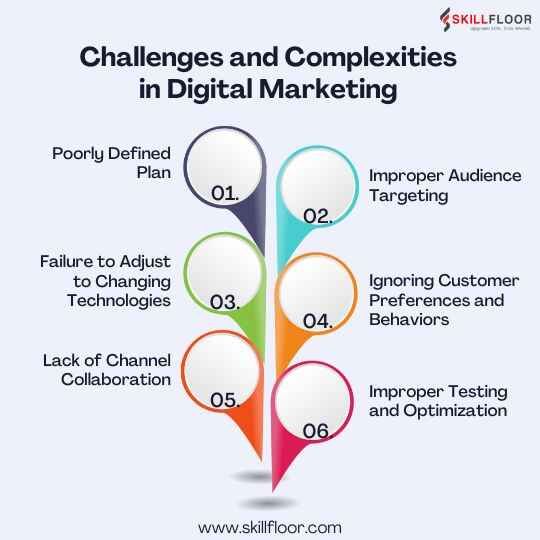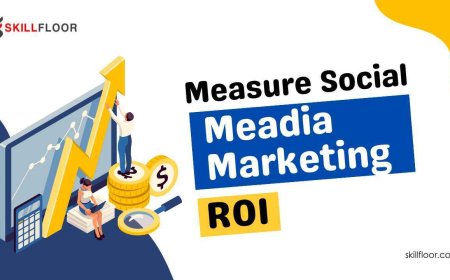The Secrets of a Successful Digital Marketing Campaign
Learn how to create a winning digital marketing campaign with effective strategies for advertising, social media, SEO, content, and email.

A company's capacity to carry out a successful digital marketing campaign is often the determining factor in the modern digital environment. These kinds of ads can reach a large number of people, encourage interaction, and eventually increase revenue. But it takes more than just putting up some advertisements and crossing your fingers to create a successful digital marketing strategy. This post will reveal the strategies used in profitable digital marketing campaigns and offer helpful advice for reaching your marketing objectives.
A fundamental element of any effective digital marketing campaign is having a thorough understanding of the target audience. To determine your target population, their preferences, and their pain areas, you must undertake in-depth market research. You may effectively adjust your marketing messaging and content to resonate with your audience by acquiring deep insights into them.
Digital marketing campaigns have many advantages, such as being scalable, affordable, and measurable. Digital campaigns, as opposed to traditional marketing techniques, give companies the ability to target particular demographics, monitor effectiveness in real time, and adjust plans as necessary.
Getting Around in the World of Digital Advertising
PPC Precision Targeting
With pay-per-click (PPC) advertising, businesses can reach their ideal demographic with laser-like accuracy because of its unmatched precision targeting capabilities. PPC campaigns have the potential to produce significant returns on investment and quantifiable outcomes for companies of all sizes by utilizing keyword targeting, audience segmentation, and retargeting.
Maximizing Social Media Advertising
Due to its unmatched reach and targeting capabilities, social media marketing has become an essential part of contemporary marketing strategy. With the powerful advertising options offered by social media platforms like Facebook, Instagram, and LinkedIn, marketers can target particular demographics, interests, and behaviors with their messaging. Brands can use social media advertising to reach a wider audience and establish a more personal connection with them.
Challenges and Complexities in Digital Marketing Campaign
Even with digital marketing's great ability to swiftly and affordably reach a worldwide audience, many programs still fail to produce the desired results. These mishaps are frequently caused by a few typical errors that have the power to make or break a digital marketing strategy's efficacy.
1. Poorly Defined Plan: One of the biggest problems is the absence of a solid and well-defined marketing plan. It's challenging to match campaign objectives with corporate goals in the absence of a strong plan, which makes it nearly hard to assess success. A digital marketing plan should specify target markets, establish measurable goals, and list the strategies and platforms that will be employed to reach these targets.
2. Improper Audience Targeting: It's important to identify and target the correct audience. Too many efforts fall short because they are unable to identify their target audience. Outdated client data or inadequate market research may be the cause of this imbalance. To effectively discover and comprehend the demands and behaviors of potential customers, audience segmentation and advanced analytics tools are critical.
3. Failure to Adjust to Changing Technologies: The world of digital marketing is constantly changing due to ongoing technological breakthroughs. Marketers need to be aware of and flexible in response to changes in search engine and social media algorithms, as well as new developments in digital marketing tools and trends. If you don't adapt to these developments, your current marketing strategies may become outdated.
4. Ignoring Customer Preferences and Behaviors: Customer trends are subject to sudden changes, thus strategies that were successful a few months ago may not be so now. Poor-performing campaigns are usually those that do not adapt in response to customer feedback and behavior analytics. Retaining campaigns' relevance and efficacy requires constant customer engagement, preference tracking, and strategy and content modification.
5. Lack of Channel Collaboration: An integrated approach incorporating many channels, including email, social media, SEO, and content marketing, is necessary for successful digital marketing. The campaign's overall impact may be weakened by disjointed efforts that result in uneven messaging and a fragmented client experience.
6. Improper Testing and Optimization: Failing to continuously test and optimize digital marketing strategies is another big problem. Understanding what works and what doesn't requires continuous analytics, A/B testing, and conversion rate improvement. Campaigns may fall short of expectations and stagnate in the long run if they are not routinely reviewed and adjusted.

How can I improve the ROI of my PPC advertising campaigns?
Improving the return on investment (ROI) for pay-per-click (PPC) advertising campaigns is crucial for maximizing the efficiency of your digital marketing spend. Here are key strategies to optimize your PPC efforts:
1. Keyword Optimization: Optimize your keywords by first honing your approach. Concentrate on long-tail and high-intent keywords; these are more focused and have lower competition, which frequently results in higher conversion rates. Find the terms that are most pertinent to your audience by using keyword research tools, but keep in mind the expense and level of competition for these terms as well.
2. Quality Score Improvement: By reducing their cost per click (CPC) and optimizing their ad placement, Google AdWords rewards advertising with high-quality Scores. By making your ad copy more effective, making your keywords more relevant to your advertisements, and boosting the landing page experience, you can raise your Quality Score.
3. Landing Page Optimization: Your PPC ROI is directly impacted by the performance of your landing pages. Make sure the landing pages are user-friendly, relevant, and conversion-optimized. This includes mobile optimization, quick loading times, and obvious call-to-actions (CTAs).
4. A/B testing: Test various aspects of your PPC campaigns regularly, such as landing pages, ad wording, and keyword mix. You can determine what works best and adjust your approach based on the results of A/B testing.
5. Use of Ad Extensions: To improve the exposure of your advertising and raise click-through rates (CTRs), include ad extensions in your campaigns. Extra content, connections to particular sections of your website, call buttons, location data, and other extensions can increase your website's exposure on search engine results pages (SERPs).
6. Smart Bidding Strategies: Use machine learning-driven bidding techniques, such as Google's Smart Bidding, to your advantage. These algorithms can help you get better results at reduced prices by automatically adjusting your bids based on a search's likelihood of converting.
7. Audience Targeting Enhancements: To improve relevance and efficacy, personalize your PPC ads according to user data like geography, behavior, and demographics. You can get much higher click-through and conversion rates with advanced targeting.
8. Performance Analysis and Feedback: Monitor your campaigns' effectiveness with analytics. Conversion rate, cost per conversion, CTR, and total ROI are important metrics to pay attention to. Examine the facts to see what is effective, then use that knowledge to guide your decision-making to improve your tactics.
By implementing these strategies, you can significantly improve the efficiency and effectiveness of your PPC campaigns, leading to better ROI. Continuously monitor, analyze, and adjust your approach based on performance data to stay ahead of the competition and achieve optimal results.
Successful digital marketing campaigns require careful planning, execution, and analysis. By understanding your audience, setting clear goals, crafting compelling content, leveraging social media, implementing SEO strategies, utilizing email marketing, embracing video marketing, and analyzing and iterating on your campaigns, you can drive meaningful results for your business.





























































